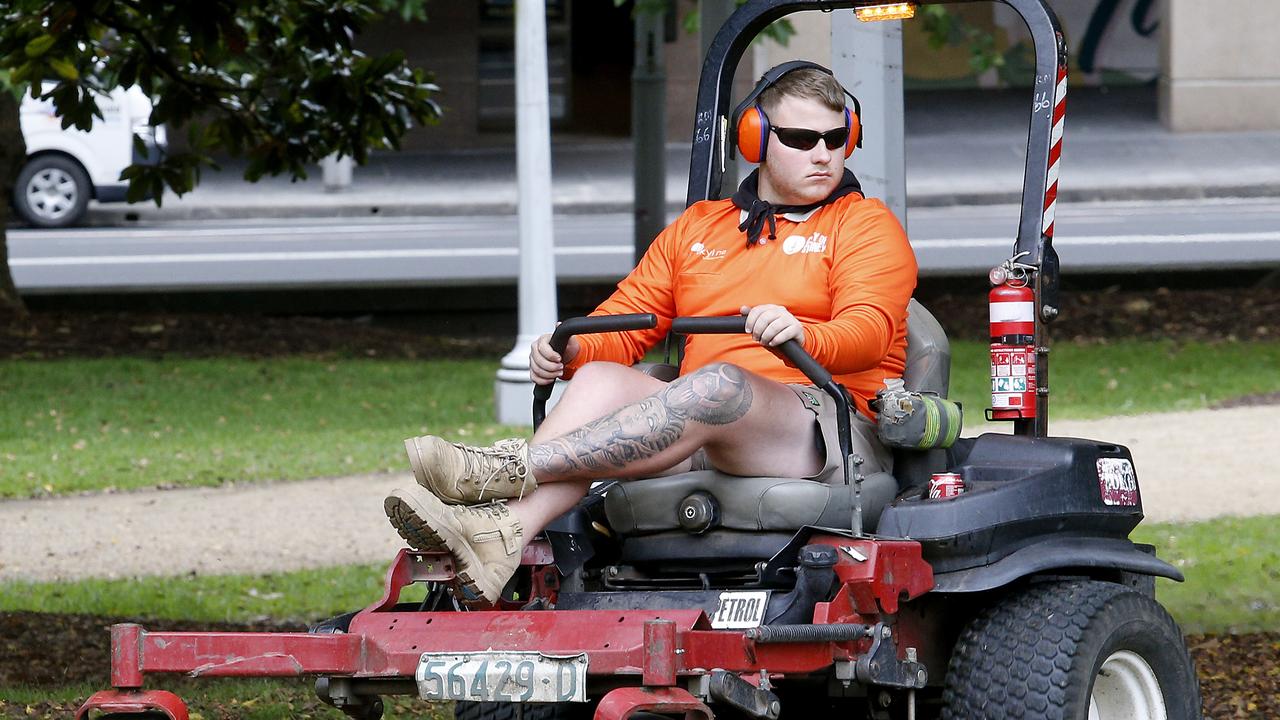Proof work is eating into every part of your day
WITH smartphones in every pocket, we’re more connected than ever. Now here’s the proof work is eating into every part of your day, every day.

THE traditional nine-to-five work day has been completely thrown out the window.
Gone are the days when you can switch off when you walk out the office. Instead, more and more Australians are being stalked by their work emails or tasks everywhere they go because of those little devices we take with us everywhere — smartphones.
A new study from Microsoft found 76 per cent of Australians now use a smartphone while 45 per cent use a tablet. With mobile technology literally at your fingertips, it’s not surprising that your work life and your leisure life have become increasingly blurred.
The Microsoft study found 42 per cent of working or studying Australians do work-related tasks such as emails before they leave the house in the morning. Almost a quarter (23 per cent) are engaged in work-related activities on their devices while they’re out socialising with their friends. Thirty-eight per cent are doing more work when they get home at night while 38 per cent are doing it on the weekend.
The trade-off is Australians are doing non-work stuff while they’re at work. Forty-one per cent have engaged in fun such as online shopping or playing games at work while the same amount completed organisational things including online banking while they were at work.
This is what Microsoft has called the “reinvention of the workday”.
There’s no doubt technological advances have facilitated some better working practices such as more flexible working conditions for people who have other commitments such as children. And it has enabled connections such collaborating with someone on the other side of the world, the kind of things once only available to big companies with deep pockets.

But what about the individual worker in this new reality? Seventy-eight per cent of Australians said they believe technology has increased their productivity while 39 per cent of those aged between 18 and 35 said they don’t mind being contactable 24/7.
However, work balance consultant Barbara Holmes, director of Managing Work|Life Balance International, told news.com.au: “People feel as if they have to check their emails or voicemails because otherwise they won’t be seen as being committed to their workplace or job. There’s this demand they’ve got to do it. It’s difficult for people to put boundaries around their personal time.
“The other reason is they know if they don’t keep following up, there will be this backlog when they get into the office.”
Ms Holmes argued that individuals should have a real choice in where they set those boundaries. For those who have flexible working conditions, it’s important that the situation works for them. Ms Holmes gave the example of an email footer she recently saw which was along the lines of “We work flexibly and may be sending this email outside of work hours but I don’t expect you will respond in that time frame.” She said: “ It was very respectful of an individual’s choices and we don’t do that enough. When it comes to the point where [doing work outside of normal hours] is imposed or there’s an expectation, then I don’t think that is healthy.
“You just have to look at the incidence of mental health issues in the workplace. People are not able to take a good break and have that downtime.”

A 2013 study from the Australian Psychology Society found 47 per cent of workers cited issues in the workplace as being a source of stress. At the time, Professor Lyn Littlefield from APS said there had been a decline in workplace wellbeing since the studies began two years previously, the ABC reported.
Foad Fadaghi, head of technology research firm Telsyte, said in the study: “Once you’re connected, there’s no going back. As technology advances, the lines between the different parts of our lives are going to become more blurred.
“You can understand if people feel overwhelmed by technology sometimes. You have to consciously switch off because you’re always connected by default now. Whereas in the past it was the reverse — we had to consciously switch on. You had to sit down and boot up the computer and consciously choose to switch off, to put the phone down and watch the sunset or read a book instead.”
Recently, France grabbed headlines when it introduced legislation that would ban employers from compelling workers in certain sectors to check work emails after 6pm.
In another twist, Mexican billionaire, and the world’s second richest man, Carlos Slim recently said the world should move to a three-day working week.
What do you think? Do you check work emails outside of office hours? Is it a drain on your work/life balance? Is work/life balance still relevant?




